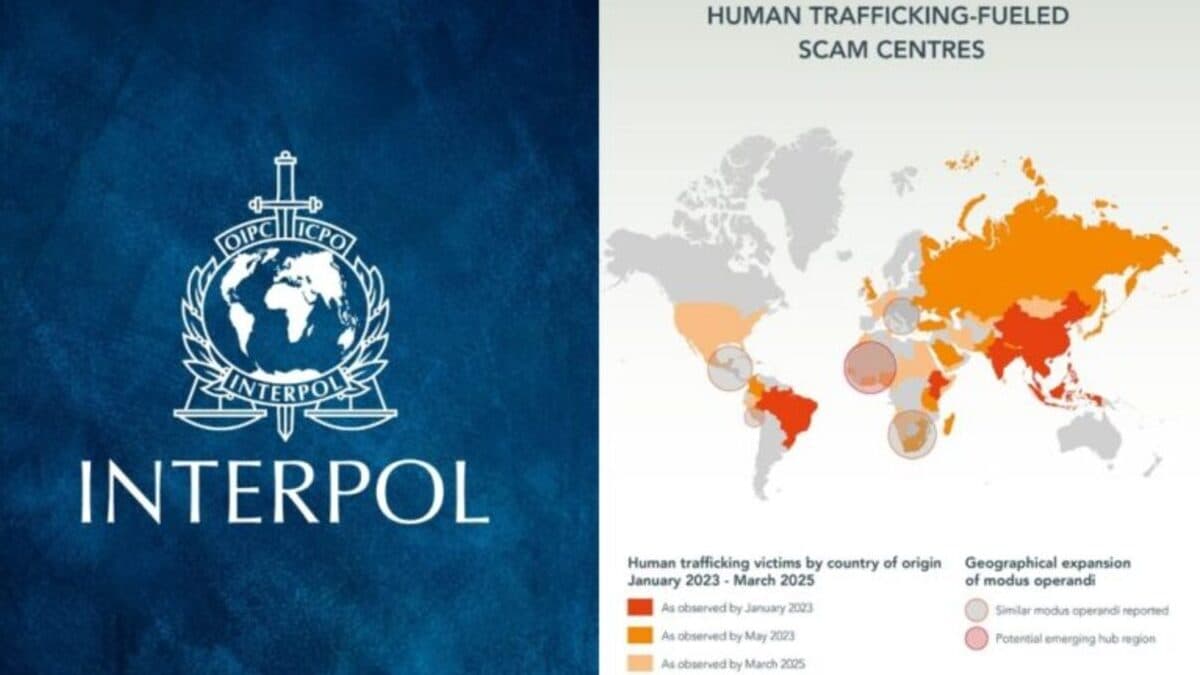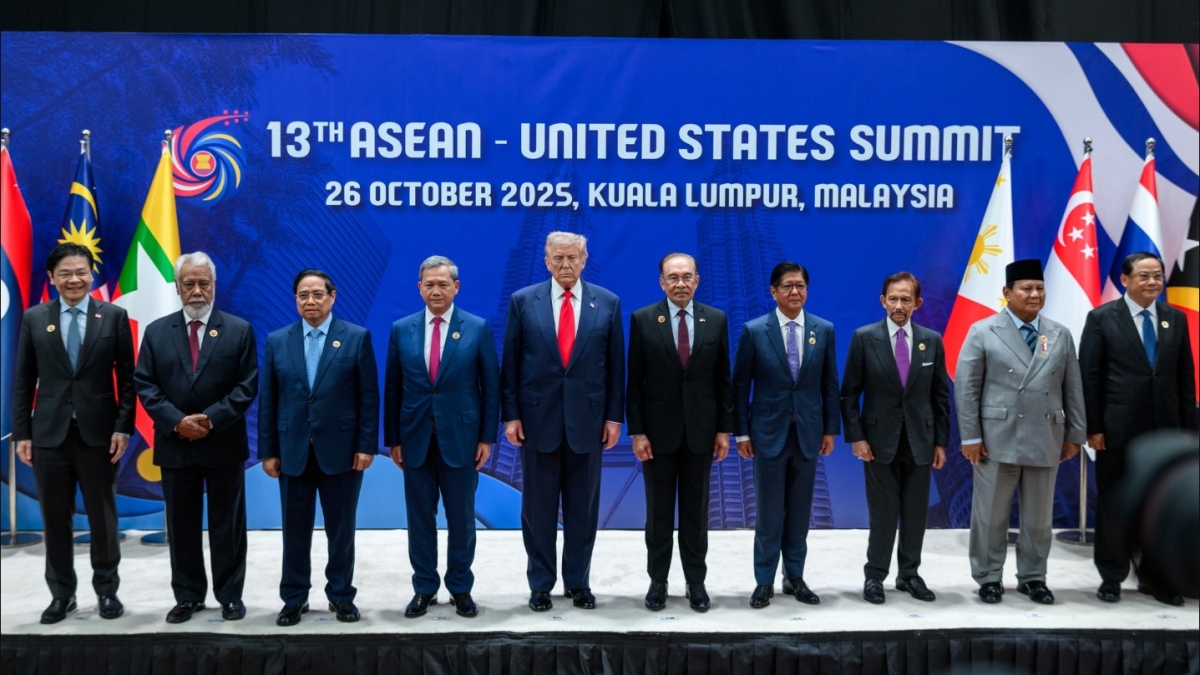Interpol warns of global expansion of human trafficking–linked scam centres
Interpol has uncovered a fast-spreading global crime trend driven by human trafficking and digital deception, with victims from more than 60 countries forced to run online scam operations. Authorities say the use of AI and deepfakes is making these crimes more sophisticated and harder to trace.

- Online scam centres using forced labour have spread from Southeast Asia to Africa, the Middle East, and Central America.
- Victims are trafficked through fake job ads and coerced into running large-scale digital fraud operations.
- Interpol and the UN call for urgent international cooperation as syndicates exploit AI and weak governance to expand globally.
Interpol has uncovered a fast-spreading global crime trend driven by human trafficking and digital deception, according to its March 2025 report.
The agency found that forced-labour scam centres, once concentrated in Southeast Asia, are now expanding rapidly across West Africa, the Middle East, Central America, and other regions.
Victims from at least 66 countries have been trafficked and coerced into running online scams, including investment and romance fraud, online gambling, and illicit money transfers.
Southeast Asia remains the core — but new hubs are emerging
Around 74% of known victims are located in Cambodia, Laos, Myanmar, and the Philippines.
However, Interpol warned that West Africa is becoming a new hotspot for such operations, aided by weak enforcement and corruption.
Coercion, confinement, and abuse
Victims are often lured by fake online job ads, then detained and forced to commit crimes.
Those who refuse face threats, physical violence, or torture. Others are manipulated through debt bondage or psychological coercion.
Global raids reveal the scale
In 2024, a Philippines raid dismantled one such centre, while another in Namibia freed 88 young victims and seized 163 computers and 350 phones.
AI and deepfakes fuel industrial-scale scams
Interpol warned that AI tools are now used to craft fake job postings, deepfake personas, and sextortion content, allowing syndicates to scale their scams while staying hidden.
UN: Crime networks earning billions
The UN Office on Drugs and Crime (UNODC) estimates these scam hubs generate nearly US$40 billion annually, particularly in Southeast Asian Special Economic Zones.
Operations shift frequently to regions with weaker governance — from Asia to Africa, South Asia, Latin America, and the Pacific.
Migrant workers and the “crime-as-a-service” model
Victims often come from India, Nepal, Bangladesh, and African nations, lured by fake overseas jobs.
UNODC reports that syndicates now use “crime-as-a-service” systems, leveraging botnets, deepfakes, malware, and crypto platforms to automate fraud and launder proceeds.
Interpol calls for unified response
Cyril Gout, Interpol’s Acting Executive Director of Police Services, urged governments to share intelligence and work with NGOs and tech firms.
The UNODC warned that without urgent international coordination, the world faces “unprecedented and irreversible consequences” from this expanding, tech-enabled crime ecosystem.







